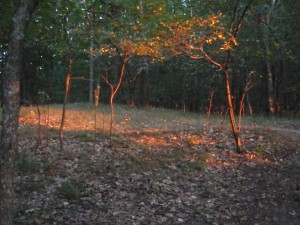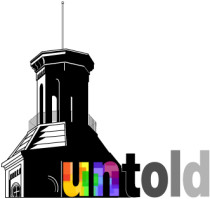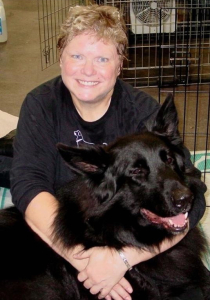Hiding at Wheaton
As an undergrad, I hide from myself. My sophomore year, I fall in love with a man with relief. When stray thoughts enter my mind, I am creative. I am drawn to her face or her curves because…well, didn’t God make women objectively attractive? My pulse races when I am with her because…caffeine? And so I corral my pesky thoughts on the rare occasions they creep into consciousness.
Mental gymnastics help me continue hiding until my mid-20s. Coincidentally, I finally come out to myself several days before my interview for the doctoral program in Clinical Psychology at Wheaton College. When I receive my acceptance letter and decide to enter the program, I know that “homosexual behavior” is grounds for dismissal. 
But three things are true:
1. I am still pretty sure that homosexuality is a sin.
2. Wheaton College was a positive, healing place for me as an undergrad.
3. I honestly believe God is calling me to return.
The third one still amuses me, as I spent my freshman year feeling estranged from my classmates who spoke (I thought) blithely of God sending them to Wheaton.
The doctoral program is a five-year program. Halfway through the first year, I don’t believe homosexuality is a sin. At the beginning of my second year, I meet a woman at my church and am instantly smitten. After six months of contemplation, I initiate and we begin a relationship. Which leaves 3 years, 5 months of hiding.
Why not leave? Why stay at a school that would kick me out for loving someone? Alternately, wasn’t my conscious decision to violate the Community Covenant a breach of integrity? This is the truth of it. I honestly believed I was called to be at Wheaton College. And I believed I had met the love of my life. And I had a vision of someday using my doctoral degree from Wheaton and my experience to be a gift to others.
What was it like being silent at Wheaton? It is a paradox. On campus, I feel alone and increasingly estranged. Every time we talk about “homosexuality” in class, which is frequent, it stretches my endurance to listen and keep silent. I gradually drift away from most of my friends in the program. A couple of them explicitly ask me why I am withdrawing. Lying to them makes me nauseous. But I don’t trust them to keep my secret, nor do I believe they should share my burden of silence.
Outside of school, I have never been less lonely. We are deeply in love. We build a significant friendship network of people who love and support us. Still, I weep after attending the weddings of my classmates, knowing I can’t share that part of my life with them. And I long to get married. I know she is “the one.” But she insists, wisely, that we wait until I complete my doctoral degree. Our wedding will not be hidden. Three years and five months pass slowly, but the ceremony is glorious.
My silence was not ultimately emotionally damaging because I formed community outside of Wheaton College. I cannot imagine hiding as an undergrad when you are so much more dependent on campus life. In college, I never even had a car. I was on the 20-meal plan all four years.
But I don’t trust them to keep my secret, nor do I believe they should share my burden of silence.
I was touched to see how many undergraduate allies rallied around their peers on the Day of Silence of April 20th. The only person I came out to in the graduate program was an increasingly outspoken ally. He was kind and would check in with me after yet another awkward conversation about homosexuality in class.
Now I am not silent. But I feel compassion for LGBTQ members of the Wheaton College community and in the many conservative Christian colleges, churches, and organizations around the world who are silent. I hope that these words help even one of you feel less alone.
~ Lora, BA in Philosophy, 97; Psy.D. in Clinical Psychology ’07



Thanks for sharing your story, Lora. I am glad you came through healthy and happy!
Thanks for sharing your story Lora! It is comforting to know that someone seems to have found peace. I, however, continue to limp along after the scars left on me. While in the Clinical Psychology M.A. of 2007 cohort I said that it was advertising ignorance to assume gay people were pedophiles. I was reacting to statements by conservative Christians. Since then I became a target. I had my own sexual compulsivity (towards adult men) to deal with and made some serious mistakes but it doesn’t justify, in my mind, some of the treatment I have received. It is too complicated to describe here but things were done that supposedly only a homosexual would perceive as sexual. I was told by a conservative Christian, that said he had been an assassin for the US government, “would someone without your history perceive it that way” and by another conservative Christian “whatever happens in your perceptor is your issue”. I’m talking about things like an authority figure holding a candle by his crotch. Yeah, messed up right? Actually, I’m kinda desperate to talk with someone educated in psychology, Christianity (including its conservative subculture) and homosexuality. Somehow I still believe I can be salt and light, but I am seriously questioning what that could look like for me. I would welcome any support I can get at this point. thanx. Oh, I want to add that part of why I can empathize with people who feel the need to hide is because there are good reasons for hiding once one has entered into various contracts with a subculture that is hostile to homosexuality.
P.S. My e-mail is daniel.john.smith@hotmail.com
I applaud the courage of those who are compelled to step out of the darkness of anonymity and share their personal stories of redemption with this community. I believe this will be a source of healing for many that have left Wheaton with a heavy heart, and for many that are there now, silently suffering and pining after redemption. Unfortunately, Jane Doe’s faceless and nameless accusation is consistent with the type of willful ignorance that I remember being quite rampant at Wheaton, which brings a lot of heartbreak to this alumnus, and is very likely continuing to perpetuate a fundamental problem of active repression and guilt mongering throughout the campus.
I never felt the loneliness at Wheaton that my gay friends experienced on a daily basis, but for some reason I became a sort of confidante for some of them. When I would talk to these guys, they were people that I knew I surrendered every part of their heart and mind to a standard that was so contrary to something that felt so essential to their life. This is not like talking to a person with a substance abuse issue, who craves something that they have indulged. In many cases, these young men would force themselves into relationships that felt unnatural to them and caused frustration and anxiety for their partners. When you talk to people that have gone that far in the other direction to make sure it didn’t feel absolutely right – I think it’s safe to say those people have done everything they can to answer the questions of their sexuality, and have realized that the answers we have been given regarding the issue have for a long time been completely unsatisfactory, both in spiritual and scientific terms.
After spending four years surrounded by some of the most intelligent people I have ever met, I still look back on my days at Wheaton and remember a flock of sheep, singing joyfully about their place in the Kingdom of Heaven, while many in their midst experienced Hell on Earth because of short-sighted readings and dogmatic enforcement of an ancient text for which the entire campus has no actual common understanding – this seems naive, and unreflective of the wisdom and knowledge of which the college boasts.
The issue of regulating a person’s sexual experience because of inconclusive religious texts is superstitious, devolutionary, and harmful. These are the things that force the Christian community into the fringe of society with other religious organizations that have more regard for ideals of a largely incomprehensible text than they do for human life. These are the things that lead to division within communities, and have been the cause of violence and abuses of all manner. Christianity as a whole, until very recently, has been on one side of this issue, and I believe that is enough to question the leaders of the faith, if not the faith itself. In the current state, what we have been told about the gospel is inconsistent with the way we have seen it being demonstrated. Either the gospel is a complete, farcical, manipulative, tool of mind-controling poison used to torment humanity by holding its own weaknesses in its face and mock their inability to be freed from them by their own will – OR – we have read some things incorrectly, and perhaps taken some things far too literally before gaining a complete understanding of its meaning and context.
Keep doing what you’re doing 1W – love you all!
Blair Skinner, Music 2008